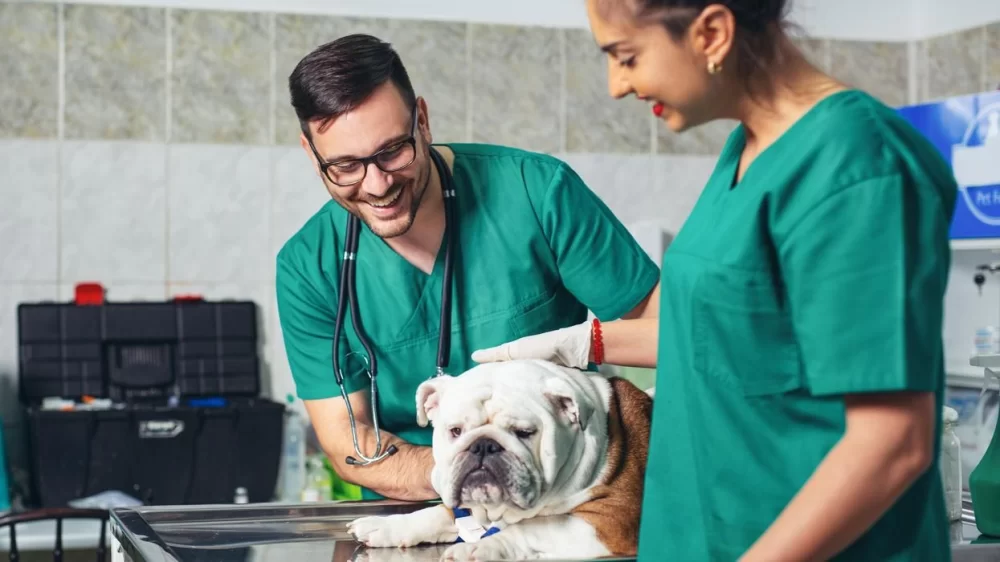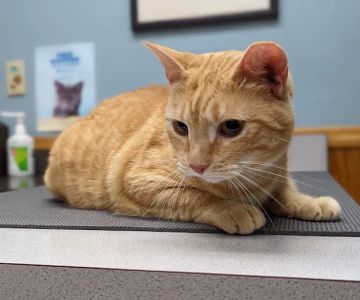Do You Call a Veterinarian Doctor? Understanding the Role of Veterinarians
- 1. Introduction: The Role of Veterinarians
- 2. Do You Call a Veterinarian Doctor? Clarifying the Term
- 3. The Education and Training of a Veterinarian
- 4. Are Veterinarians Considered Doctors?
- 5. Respecting the Veterinarian’s Role in Healthcare
- 6. Real-Life Example: A Day in the Life of a Veterinarian
- 7. Conclusion: Why Veterinarians Deserve the Title of Doctor
1. Introduction: The Role of Veterinarians
Veterinarians play a crucial role in maintaining the health and well-being of animals. These professionals diagnose, treat, and prevent diseases in animals, ranging from household pets like dogs and cats to large farm animals and wildlife. But one common question that often arises is, "Do you call a veterinarian doctor?" In this article, we’ll explore this question and help clarify the responsibilities and qualifications of veterinarians, as well as the reasons behind referring to them as doctors in certain contexts.
Before we dive into the specifics, it’s important to acknowledge the broad spectrum of duties veterinarians perform. They are highly trained medical professionals who make significant contributions to both human and animal health, offering expert advice, performing surgeries, and providing emergency care to animals in need.
2. Do You Call a Veterinarian Doctor? Clarifying the Term
In many countries, veterinarians are commonly referred to as "doctors" in recognition of their advanced education and the nature of their work. This can sometimes lead to confusion as people might not be sure if the title "doctor" is applicable to veterinarians. While veterinarians are not medical doctors who treat humans, they hold a Doctor of Veterinary Medicine (DVM) degree or an equivalent, such as the VMD (Veterinary Medical Doctor), making them legally entitled to the title of "Doctor." So yes, you can and should call a veterinarian "doctor," as it reflects their qualifications and professional standing.
The confusion around this can stem from the fact that veterinarians treat animals, not humans. However, the amount of education and training they undergo to become licensed professionals is comparable to that of a medical doctor. In fact, both veterinarians and medical doctors study similar subjects such as biology, anatomy, and pharmacology, with the primary difference being the application to animals versus humans.
3. The Education and Training of a Veterinarian
To become a veterinarian, individuals must complete a rigorous educational path. This typically begins with earning a bachelor’s degree in a related field, such as biology or animal science, followed by attending a veterinary school that is accredited by the American Veterinary Medical Association (AVMA) or its equivalent in other countries. The DVM program typically takes four years to complete and includes both classroom learning and hands-on clinical experience.
During veterinary school, students learn about animal health, surgical techniques, diagnostic tools, and the various diseases that affect different species. They also undergo clinical rotations in veterinary hospitals, where they get firsthand experience working with animals under the supervision of licensed veterinarians. Upon graduation, they must pass the North American Veterinary Licensing Examination (NAVLE) or a similar licensing exam in their country to practice legally.
4. Are Veterinarians Considered Doctors?
While veterinarians are often referred to as "doctors," there is sometimes debate over whether they should be recognized as doctors in the same way that human medical doctors are. The key factor is that veterinarians undergo extensive education and training to diagnose and treat animals, just like human doctors diagnose and treat people. Their expertise is in the medical care of animals, and the work they do requires a high level of scientific knowledge and technical skill.
Veterinarians, like doctors, are responsible for making important medical decisions, performing surgeries, and advising pet owners on the health of their animals. Their role extends beyond basic care, as they are also involved in public health, food safety (such as ensuring the health of livestock), and research related to animal diseases that could affect humans, like zoonotic diseases.
5. Respecting the Veterinarian’s Role in Healthcare
While there may be some confusion about the title "doctor," it’s important to recognize the vital contributions veterinarians make to public health. By ensuring that animals receive the proper care and attention, veterinarians help maintain the overall health of ecosystems, protect food sources, and prevent the spread of diseases. Their expertise not only benefits animals but also plays a crucial role in preventing diseases from crossing over to humans.
For instance, veterinarians are crucial in monitoring and controlling diseases like avian flu or rabies, both of which can impact human populations. Their knowledge and research help develop treatments and vaccines, benefiting the broader community. This level of involvement and expertise certainly warrants the respect and recognition of their title as "doctor."
6. Real-Life Example: A Day in the Life of a Veterinarian
Let’s take a look at the life of Dr. Laura, a practicing veterinarian who works at a busy animal clinic. Her day begins with checking in on her morning appointments, which include routine checkups for pets. Throughout the day, she treats a variety of animals, from puppies and kittens to older dogs with chronic conditions.
One particular day, Dr. Laura had to perform an emergency surgery on a dog that had ingested something harmful. The surgery was successful, and the dog made a full recovery. Afterward, Dr. Laura took the time to explain the procedure and recovery plan to the pet’s owner, offering reassurance and advice on how to care for the animal post-surgery. As she finishes up her day, Dr. Laura reflects on the many lives she’s touched—both human and animal—and how rewarding it is to have the title of "doctor" in a profession she loves.
7. Conclusion: Why Veterinarians Deserve the Title of Doctor
So, do you call a veterinarian "doctor"? The answer is yes, and it’s well deserved. Veterinarians undergo years of education and training to become experts in their field, and their role in animal healthcare is essential. While their work focuses on animals, their contribution to public health, disease prevention, and research cannot be overstated.
Veterinarians are highly skilled professionals who deserve recognition for their expertise and commitment to the well-being of animals. So, next time you visit a vet, remember to address them with the respect they deserve by calling them "doctor." Their title reflects their education, training, and the vital role they play in keeping both animals and humans healthy.












